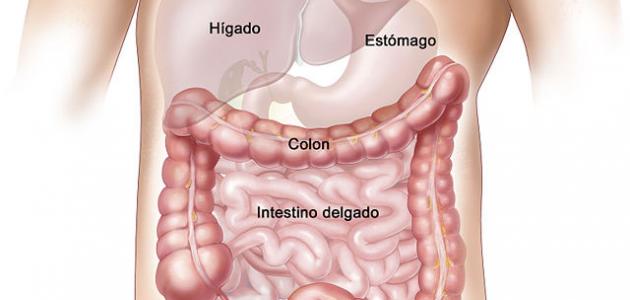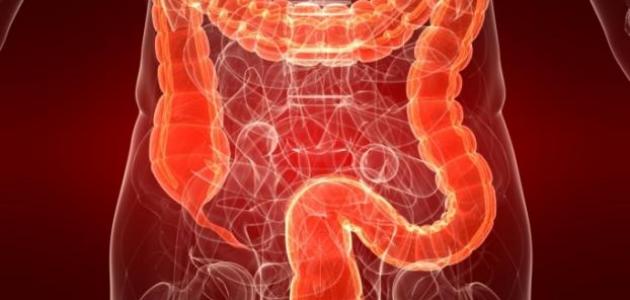Contents
Colic spasm
The colon, also known as the large intestine, is defined as a part of the digestive systemFor humans, which is the part responsible for forming, storing, and excreting stool, a person may be exposed to colon spasms , which is the occurrence of a sudden and automatic contraction of the muscles in the colon. But what happens in the case of colic spasm is that the muscles of the colon contract in an irregular manner, and the person feels their occurrence, and they are painful unlike the normal contractions that a person does not feel at all, and colic spasm is usually associated with irritable bowel syndrome , in which spasm of the colon muscles is a symptom of irritable bowel syndrome, also known as irritable bowel syndrome, but it should be noted that not all people with irritable bowel syndrome suffer from spasms in the intestine, as colic spasm can be a result of problems Other health conditions, or even a person may develop colic spasm without a specific and known cause.[1] [2] [3]
Symptoms of colic spasm
The severity of colic spasm symptoms varies from one person to another, and the following are some of the colon spasm symptoms: [2] [4]
- Sudden pain in the abdomen: especially in the lower left part of it, and it is worth noting that the pain varies in intensity in every spasm of the colon.
- Bloating and flatulence: Gas and bloating occur at any time of the day, regardless of the diet.
- The sudden need to use the toilet: The contraction of the colon muscles increases the speed of bowel movement, and when a person experiences a spasm in the colon, he may need to use the toilet urgently.
- Changes in excretion: Bowel movement changes between diarrhea and constipation in people who suffer from colic spasm.
- Soft stool: Disorganized movement may prevent the human body from fully forming stools, so the stools are soft and loose.
- Mucus in the stool: transparent or white mucus may appear in the stools of people who suffer from colic spasm or have irritable bowel syndrome.
Causes of colon spasm problems
Although there are no studies confirming the exact cause of colic spasm, there is information about some health conditions that can cause suffering from colic spasm, and the following is an explanation: [5] [6]
- Irritable Bowel Syndrome: Although the cause of Irritable Bowel Syndrome is still not clear until now, experts have been able to identify some factors that may have a role in it:
- Problems with bowel movement: The work of the muscles of the large intestine, including the speed and force of intestinal contractions, affects the occurrence of colic spasm.
- Visceral hypersensitivity; Hypersensitivity to the gut pain receptor plays a role in colonic spasm, where the response to pain from pressure in the large intestine area is stronger than the normal response.
- The role of the nerve connecting the brain and the intestine: where the nervous system plays a role in the changes that occur to the neurotransmitters connected to the intestine, in addition to the change that occurs in the level of hormones , and it should be noted that both tension and stress stimulate the occurrence of convulsions as well.
- An imbalance of gut bacteria: An imbalance between good and bad bacteria in the stomach may lead to colic spasm.
- Infections: such as: Crohn's disease and ulcerative colitis . [7]
- Other cases: such as; Increased gas and bacterial infection in the intestine. [7]
Diagnosing colic spasm
In order to reveal the underlying cause of suffering from painful spasms and colon spasms, and to diagnose the condition of the patient, the doctor first asks a patient about a description of the symptoms he is suffering from, when they occur, and about the nature of the factors that stimulate or worsen them, and the doctor also inquires about the nature of the system Diet, and physical activities. The doctor then conducts or requests a set of tests as he deems appropriate, and among these examinations we mention the following: [8] [9]
- A physical examination of the injured person.
- Blood tests.
- Imaging tests: Imaging tests, ultrasound and computerized tomography .
.
Colon spasm treatment
The treatment of colic spasm depends on the disease or disorder causing its occurrence, and the following is an explanation of some of the methods used in treatment: [5]
Drug therapy
The doctor may prescribe some medicines to relieve spasticity or treat the disease causing it, and the following is an indication of some medicines that the doctor can recommend to take: [10] [8]
- Antispasmodic medicines.
- Corticosteroids
- Aminosalicylates.
- Antacids .
- Proton pump inhibitors.
- Antibiotics.
- Pain relievers
Home treatment
Non-drug treatment includes changing the lifestyle and diet of people who suffer from colon spasm, and adopting some home treatment methods that are useful in relieving colic spasm, including: [11] [8]
- Rest: to relieve muscle tension in the stomach and intestines.
- Heat therapy: This can be done by applying hot compresses to relax the abdominal muscles and relieve cramping.
- Drink enough fluids: Dehydration and lack of fluids can be one of the causes of colic spasm.
- Massage: Massaging the abdominal muscles helps increase blood flow to the area and thus relieve the feeling of cramping.
Psychotherapy
Studies indicate that cognitive behavioral therapy has an effect in treating colic spasm symptoms, and the following is an explanation of some behavioral habits that help in the case of colic spasm. [12]
- Deep breathing exercises .
- Progressive muscle relaxation.
References
- ↑ "The Colon: What it is, What it Does" , www.fascrs.org , Retrieved 2/ 26-2019 . Edited.
- ^ A b "Colon-Spasm" , Www.healthline.com/ , 16-3-2018, Retrieved 26-2-2019. Edited.
- ↑ "Bowel Spasm" , www.haveigotbowelcancer.com , Retrieved 2-26-2019 .
- ↑ "irritable-bowel-syndrome" , www.mayoclinic.org , Retrieved 25-2-2019. Edited.
- ^ A b "Spastic-Colon" , Www.verywellhealth.com , 31-3-2018, Retrieved 26-2-2019. Edited.
- ↑ "Irritable Bowel Syndrome" , www.webmd.com , Retrieved 25-2-2019. Edited.
- ^ A b "Colon Spasms" , Www.healthline.com , Retrieved 31-3-2019. Edited.
- ^ A b v "Why do I have muscle spasms in my stomach?" , www.medicalnewstoday.com , Retrieved 14-2-2019. Edited.
- ↑ "Irritable Bowel Syndrome (IBS or Spastic Colon)" , www.gidoctor.net , Retrieved 26-2-2019 . Edited.
- ↑ "Medications for IBS" , www.verywellhealth.com , Retrieved 26-2-2019 . Edited.
- ↑ "IBS Diet" , www.verywellhealth.com , Retrieved 26-2-2019 . Edited.
- ↑ "cbt-cognitive-behavioral-therapy-for-ibs" , www.verywellhealth.com , Retrieved 2-26-2019 . Edited.

